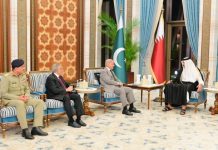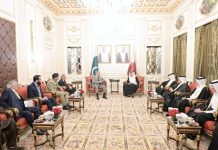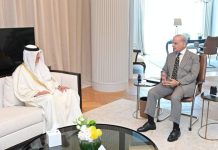DM Monitoring
NEW YORK: The United Nations General Assembly elected Algeria, Guyana, Sierra Leone, Slovenia and South Korea to the U.N. Security Council on Tuesday for two-year terms starting on Jan. 1, 2024, while Belarus – allied with Russia in its invasion of Ukraine – was denied a spot.
Algeria, Guyana, Sierra Leone and South Korea ran unopposed for a spot on the 15-member body, which is charged with maintaining international peace and security. In the only competitive race, Slovenia beat out Belarus. The five elected nations will replace Albania, Brazil, Gabon, Ghana and the United Arab Emirates.
The Security Council is the only UN body that can make legally binding decisions such as imposing sanctions and au-thorizing use of force. It has five permanent veto-wielding members: Britain, China, France, Russia and the United States.
To ensure geographical representation, seats are allocated to regional groups. But even if candidates are running un-opposed in their group, they still need to win the support of more than two-thirds of the General Assembly.
Guyana received 191 votes, Sierra Leone 188, Algeria received 184 votes, South Korea 180. Slovenia won 153 votes to beat Belarus, which received 38 votes.
Belarus had been a candidate unopposed since 2007 for the 2024/25 Eastern European seat. Slovenia entered the race in December 2021 after a brutal crackdown by the authorities in Belarus on protests following a 2020 presidential elec-tion.
Russia has since used the territory of Belarus as a launchpad for its invasion of Ukraine in February 2022.
“The Russians have always argued that a lot of states support Ukraine in public at the U.N., but sympathize with Russia in private. But this secret ballot does not support that claim at all,” International Crisis Group U.N. Director Richard Gowan said.
Russia moved ahead last month with a plan to deploy tactical nuclear weapons in Belarus. It is the Kremlin’s first de-ployment of such weapons outside Russia since the 1991 fall of the Soviet Union.
May 25, Russia moved ahead on Thursday with a plan to deploy tactical nuclear weapons in Belarus, whose leader said the warheads were already on the move, in the Kremlin’s first deployment of such bombs outside Russia since the 1991 fall of the Soviet Union.
The U.S. State Department denounced the deployment plan, but said Washington had no intention of altering its posi-tion on strategic nuclear weapons or seen any signs Russia was preparing to use a nuclear weapon.
Russian President Vladimir Putin says the United States and its allies are fighting an expanding proxy war against Russia after the Kremlin chief sent troops into Ukraine 15 months ago.
The plan for the nuclear deployment was announced by Putin in an interview with state television on March 25.
“The collective West is essentially waging an undeclared war against our countries,” Putin’s defence minister, Sergei Shoigu, said at a meeting with his Belarusian counterpart in Minsk, according to Russia’s defence ministry.
The West, Shoigu said, was doing all it could “to prolong and escalate the armed conflict in Ukraine.”
Belarus President Alexander Lukashenko said that tactical nuclear weapons were already on the move in accordance with an order signed by Putin, though there was no confirmation of that from the Kremlin itself.
“The movement of the nuclear weapons has already begun,” Lukashenko told reporters in Moscow, where he was attending talks with other leaders of ex-Soviet states.
Asked if the weapons were already in Belarus, he said: “Possibly. When I get back I will check.”
Shoigu said the documents he was signing in Minsk concerned the process for storing tactical nuclear weapons in Bela-rus.
In Washington, State Department spokesperson Matthew Miller described the plans as “the latest example of irre-sponsible behavior that we have seen from Russia since its full-scale invasion of Ukraine over a year ago”.
Miller repeated Washington’s warning that use of chemical, biological or nuclear weapons in the conflict would be met with “severe consequences”, without specifying those consequences.
“I will just add we have seen no reason to adjust our strategic nuclear posture or any indications that Russia is prepar-ing to use a nuclear weapon,” Miller told reporters.
Putin has repeatedly warned that Russia, which has more nuclear weapons than any other country, will use all means to defend itself, and he has cast the Ukraine war as a battle for the survival of Russia against an aggressive West.
The United States and its allies say they want Ukraine to defeat Russian forces on the battlefield, but deny that they want to destroy Russia – and deny that the Ukraine war is in any way linked to post-Soviet enlargement of NATO.
Belarus has borders with three NATO members – Poland, Lithuania and Latvia. Russia will remain in control of the weapons.




